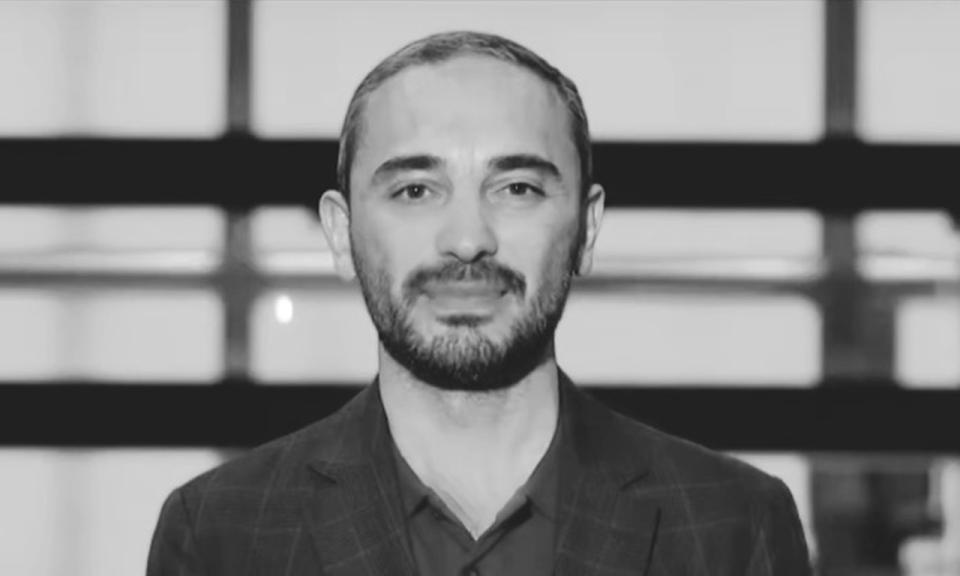Alumni blog: Four Macro Trends That Affect the Advertising Industry

I am originally a computer engineer. I've done some coding for companies like SONY, but for the last 10+ years, one of the most exciting industries out there has captivated my attention: advertising. I specialise in advertising technologies, programmatic advertising (i.e., using data & algorithms to show ads), and digital-out-of-home advertising for the last few years.
Advertising has been around for thousands of years, and probably it will be around for another few thousand years, so it has a past and it has a future. We know the history, but how will the future look?
I want to discuss some macro trends I see in advertising. I believe they're powerful enough to rethink some concepts in our industry and potentially shape the future of this industry.
1. Online advertising losing its touch & a privacy-first world
All those ads we see on the internet are about to become less effective. Why? Because you don't like them. You think they're intrusive, annoying, and many companies track you without your permission.
And you're right.
Advertising companies have failed to show ads in a balanced way. Let's admit it; we have greedy players in this industry, and they have gone to extreme measures to make more money.
In particular, intrusive tracking has upset many people, so governments introduced strict regulations like GDPR to help people. Our privacy concerns gave companies like Apple and Google reasons to limit the usage of our data. Everyone in our industry knows about the impending death of cookies, increasing limitations of mobile device IDs, ad-blockers etc.
So, the trend in online advertising is somewhat straightforward: it's losing its touch with people. Advertisers favored online ads because they could run targeted ads with personalised content, but soon those days may be over.
All those ads we see on the internet are about to become less effective. Why? Because you don't like them.
2. Back to the future
I think we'll start seeing some reverse trends in our industry, and we may go back to old-school techniques to advertise. Below are a few of the reverse-trends I observe:
From personalised to contextual: What happens when personalised ads are gone? Well, let's say hello to an old friend: contextual ads. For instance, while reading financial news, you'll see finance-related ads. As simple as that. Contextual ads used to be popular, and soon they may become popular again.
From math-men to mad-men: For the last several years, we've heard the phrase "from mad-men to math-men" a lot in our industry. I think we'll start hearing "from math-men to mad-men" soon.
From AI to HI: Artificial intelligence in advertising? Yes, maybe, but probably for different reasons than personalising ads (there wasn't much of an AI anyway, so not a significant loss). So human intelligence (HI) becomes relevant again.
From programmatic to automation: Programmatic advertising technologies may take a new form, as these technologies usually use data to target specific users. Big programmatic players desperately try to find a solution to replace cookies, but it's unclear whether they'll win this game. So while I believe automation is still essential, programmatic advertising, in particular, may lose its touch.
3. Digitalisation of Ads
This trend has been around for the last 20+ years, and it is still as relevant today.
We used to read printed newspapers to access information. Now we mainly use internet websites for the same purpose.
The same thing happens in other channels like TV (rise of ‘Over the Top’ & ‘Connected TVs’) and out-of-home (rise of digital screens). We'll see more and more connected TVs and connected digital billboards. That means we'll see more digital ads on these channels.
4. From inefficient to efficient
The trend from inefficiency to efficiency is a slow but potent one. Almost all industries try to optimise towards efficiency, and it's been happening in our industry. Below are the three main efficiency-related trends I observe in our industry.
From non-transparent to transparent: Transparency has been one of the significant issues in our industry. Especially with the rise of programmatic advertising, marketers started to question how algorithms work and how their ad agencies spend their budgets. Although there are positive developments in this area, it is far from fixed. I think in the next few years we'll see some further innovations in this area.
Digital transformation: All industries go through some digital transformation, so does ours. For example, some traditional advertising channels like out-of-home advertising have been using manual flows to operate. However, this inefficiency damages trust in these channels and limits potential ad budget increases. So we see some innovative companies in this area as well.
Optimised supply chain: There are many players between marketers and publishers. Each player takes some cut of the advertising budget, and in return, adds some value. Some of the players do not exactly add any value, yet they're still there. This trend creates confusion around the importance of these 3rd party players, and it is not sustainable. That means marketers and publishers will start asking questions like "can we rethink how to advertise effectively with fewer players between buyers and sellers?" Furthermore, this will force companies to innovate in this area.
In my opinion, all the macro-trends mentioned above are very powerful. They will potentially shape the advertising industry's future, and probably we'll be in a different world in 10 years - like we're in a different world compared to 10 years ago.
Let's better observe these trends and prepare ourselves and our companies accordingly. And in the spirit of preparing our industry for the future, we built an ad platform called Airsqreen to improve the digital-out-of-home advertising in response to many of the trends reviewed above.



